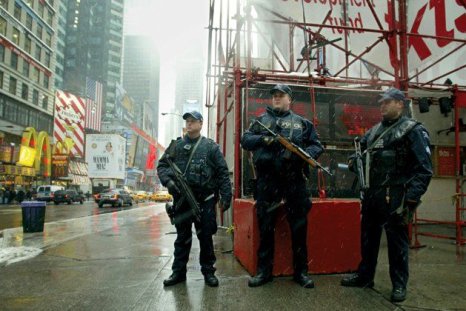Zakaria: Rising Powers Aren't Acting Like It
You can count on a few things during the U.N.'s annual General Assembly. The traffic will be bad, the speeches will be worthy (if a bit dull)—and Mahmoud Ahmadinejad will say something absurd. This year the Iranian leader suggested that U.S. officials orchestrated the 9/11 attacks to save Israel and "reverse the declining American economy."
What America Has Lost
September 11 was a shock to the American psyche and the American system. As a result, we overreacted.
GOP Should Heed Robert Gates
Robert Gates's latest efforts at reforming the Pentagon are modest. He is not trying to cut the actual defense budget; he merely wants to increase efficiency while reducing bureaucracy, waste, and duplication. The savings he is trying to achieve are perfectly reasonable: $100 billion over five years, during which period the Pentagon will spend approximately $3.5 trillion.
Why I'm Returning My Award to the ADL
I believe we should promote Muslim moderates right here in America. That is why, after the Anti-Defamation League publicly called for moving the mosque near Ground Zero, I have returned both the handsome plaque and the $10,000 honorarium that came with it.
Zakaria: Raise My Taxes, Mr. President!
The idea that the average American is overtaxed is a nice piece of populist pandering. In fact, federal taxes as a percentage of the economy are at their lowest level since the presidency of Harry Truman. The simple fact is this: all the Bush tax cuts were unaffordable.
Ford CEO: Hybrid Future Requires Better Batteries
Ford's CEO on the challenge of reinventing the automobile.
The Real Failed-State Risk
"What happened in Kampala is just the beginning!" So warned Abu Zubayr, the leader of Al-Shabab, which claimed responsibility for the bombings in the Ugandan capital that killed more than 70 people who had gathered to watch the World Cup soccer final. In the bombings' wake, Al-Shabab has drawn renewed attention for its murky links to Al Qaeda, and analysts once again are warning that failed states are a mortal threat to American national security.
Obama's CEO Problem
The American economy is sputtering, and we are running out of options. Interest rates can't go any lower. Another burst of government spending—whether a good or bad idea—looks politically impossible. Is there anything that could protect us from the dangers of stagnation or a double dip?
Obama Needs to Lead, Not Emote
I agree with virtually everyone out there who's complaining on camera and in print that our response to the oil spill in the Gulf of Mexico has been just terrible. Except that by "our" I don't mean the government's or the country's but ours—the media's.
A Rising Power Is Plagued by Doubts
China has seen dramatic labor protests in recent weeks, from strikes at a Honda factory to grim accounts of suicide at the vast Foxconn complex, where iPhones are assembled. One scholar calls this "the end of the world-factory model," under which China would be the globe's low-wage manufacturer.
Who Makes Sense—Capone or Obama?
The new line of attack against Barack Obama's foreign policy is that he's too soft, and other countries are taking advantage of him. First it was the Russians, Chinese, and Iranians. Now even the Brazilians and Turks are joining in.
Nathan Myhrvold on the Future of Energy
A founder of Intellectual Ventures, a scientific think tank working on solutions to the world's thorniest problems—including global warming. Fareed Zakaria spoke with him about alternative energy and geoengineering.
K.R. Sridhar: Bloom Energy's Fuel-Cell Guru
The CEO of Bloom Energy on a new way of powering the planet.
Don't Bet Against Goldman Sachs: Zakaria
How the rush to crucify Goldman Sachs is clouding our judgment and distorting public policy.
Bibi Is Undermining Israel's Security
The Israeli Prime Minister says his nation's security is his top priority. Too bad he's undermining it.
Moderate Muslim Leaders Beat Extremists
How moderate Muslim leaders waged war on extremists—and won.
Google's Eric Schmidt on China and Censorship
Google CEO Eric Schmidt has long defended his company's decision to do business in China despite the restrictions that Beijing imposes on Internet freedom.
Zakaria on Google's Battle With China
How the Democratic Republic of Google is testing China's appetite for democracy itself.





















